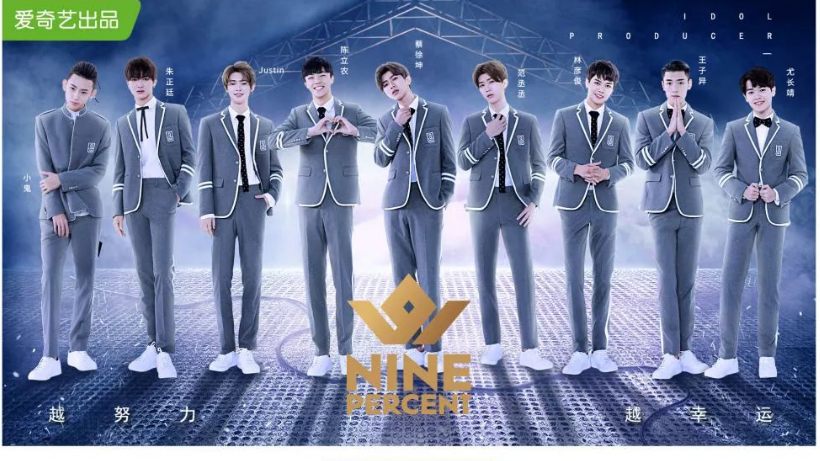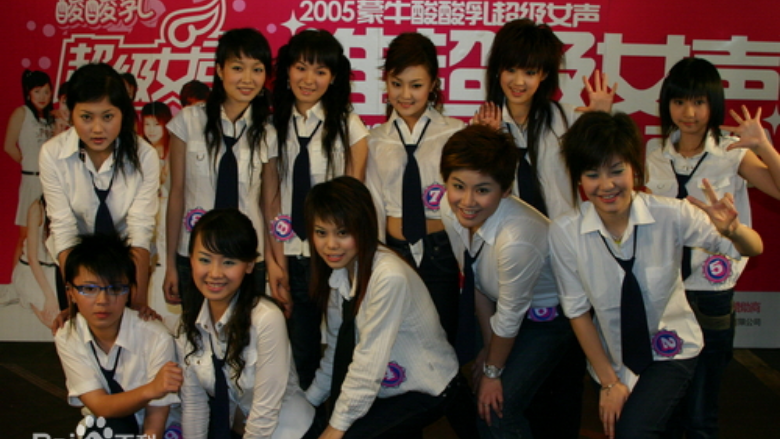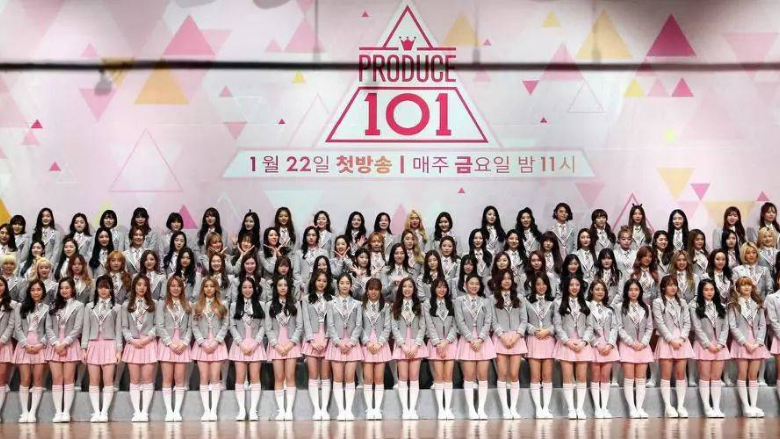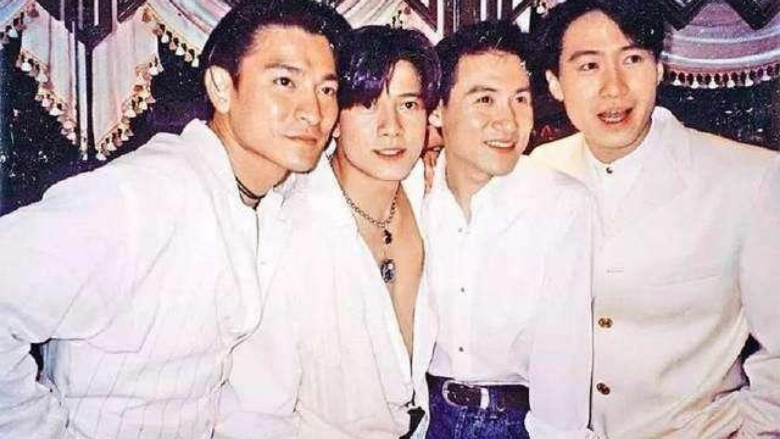Compared with swearing heatedly on Weibo, fans behave much less aggressively when they meet each other in person. What makes a seemingly normal person switch to an abusive online persona? Are Chinese society and internet culture partly responsible?
Huddled in the corner of her bedroom, Lan Chu dried her tears and turned on the phone to watch the live show of her favourite idol, as the sound of heated argument from her parents outside the door seemed to fade away.
The broken relationship and frequent fights between the parents left Lan Chu in pain, for her, watching her favourite celebrity idol became the salvation of her life.
“He was a light in my dark life,” said Lan Chu, 24-year-old, who has over ten thousand followers on Weibo and used to be a super-fan of a Chinese celebrity.
“Before I became his fan, I was a dissocial person. Because of the bad relationship of my family, I was very resistant to communicating with people. But I gradually got rid of these shortcomings in the process of supporting him,” added Lan Chu. However, this fondness lasted only about one year.
“At first, I enjoyed the change of my personality, I gained attention and recognition from the fans who support the same idol with me on Weibo, we talked and exchanged information about him. It seemed like all the pain of real life can be eliminated by supporting a celebrity,” said Lan Chu. When she was obsessed with the celebrity deeply, the wallpaper of her phone and computer were all the pictures of this idol.

But she realized that her character was changing from one extreme to the other. Lan Chu said: “Slowly I found that I started to become aggressive and harsh. I couldn’t bear a bad word that someone said about him, this feeling was like a mother who cannot bear someone scolding her son, or a wife who cannot endure someone scolding her husband.” For Lan Chu, this idol has become one of her families, made her dependent on him and wanted to fight for him.
“I started to sneering at other celebrities on Weibo, personally attacking users who criticized him, and if I wanted, I could even take the time to dig up the real personal information of these anonymous users,” said Lan Chu. During that time she became mean and rude.
“He used to be the only support in my life, I would be happy to see him, get angry and upset if someone criticize him, I spent a lot of money on the products he endorsed and spent time voting for him in every competition,” said Lan Chu. But finally, the persona of this celebrity that had been carefully crafted by the entertainment company was broken, this 19-year-old male idol dated his girlfriend but cheated on other girls at the same time.
“I was shocked, at first I insulted other people who were mocking him on Weibo. But I couldn’t fool myself that he was still as good as he appeared on the screen. I suffered depression and sadness again. I felt betrayed and have no courage to trust anyone else easily,” said Lan Chu.
However, the Chinese entertainment industry now is full of newcomers, the celebrity idols with negative news will be forgotten by capitalists and most fans, who will then turn their attention to new talents. Three months later, Lan Chu obsessed with another new celebrity and began to support this newly debuted male idol wholeheartedly.
In China entertainment industry, the speed of training a new celebrity idol is much faster than 10 years ago. From the 1980s to the present, the behaviour of supporting celebrities in China can be divided into three temporal stages.

“The first stage we called it Pre-Internet era,” said Ning Zheng, the professor of the Management of Cultural Industry School of the Communication University of China. “At that time, there was no concept of ‘Fans’,the most famous celebrities in China were the Little Tigers and Hongkong Four Heavenly Kings,” added Ning Zheng.
However, in that era, there were fans with extreme behaviour. One girl jumped into the sea to kill herself because she was too infatuated with Andy Lau (a member of Hongkong Four Heavenly Kings), but her father could not afford her dream about marrying Andy Lau.
“Then we entered into the 2.0 period, which we called it ‘Internet era’. The landmark event of this era was the launch of talent shows such as Super Girls 2004. People voted for their favourite contestants by sending text messages, it was the start of the Chinese celebrity idol industry,” said Ning Zheng. The concept of “Fans” and “Fan Circles” also emerged at this time, some fan circles even had their unique name.

In 2018, with the broadcast of talent shows such as Produce 101 and Youth With You, the Chinese celebrity idol industry had entered into a new step. Unlike in the 2.0 era, people used messages and QQ to support their favourite idols, fans now prefer to use Weibo and TikTok to collect and spread information about their supported idols.
With the development of the internet and the economy in China, on Weibo, a significant link has emerged between the age of users and the number of celebrities accounts that they followed.

Ning Zheng explained this phenomenon from the perspectives of psychology and sociology. In terms of Social Identity Theory, fans join the fan circles in search of self-concept and identity. They will engage in collective action and thus influence the attitudes and behaviour of the group.
That is why many fans are willing to join fan clubs, put their money together in order to support their favourite idol, collectively attack Weibo users who have criticized the celebrity they loved.

The second theory is the Para-social Interaction. Some fans will develop an attaching emotion to their favourite idols and develop an imaginary relationship with them. “For many fans, they may never meet their idols in person, just watching them on TV shows but creates a lot of imagination. This can explain why fans are so enthusiastic about the things related to celebrities,” said Ning Zheng. She also pointed out another cause of fans’ online abuse.
“It is Social Conflict Theory. Collisions are more likely to arise in some social structures that are flexible and elastic, such as fan communities,” said Ning Zheng. The phenomena like flaming wars, online abuse and anti-fans that appear on Weibo are the reflection of this theory.
In order to stop the abusive behaviour that fans conduct on Weibo, the Chinese government has launched some operations such as ‘Qing Lang’, which aimed to fight against the chaos of fan circles and reminded some major social platforms such as Weibo and TikTok to regulate the speech and actions of the celebrity fans.
“But fans are not the only groups who verbally attack others on Weibo. In a society where there is a growing sense of personal loss, people do not get attention in real life, so they try to seek a sense of existence on the internet, extreme behaviour is also increasing,” said Yi Xin, a senior editor of a fashion magazine.
There are many girls like Lan Chu, had little right to speech in real life, so they are more likely to be obsessed with the feeling of recognizing by others and watching some seemingly perfect idols.
So, in addition to banning fans from making offensive comments on Weibo, it is also important to guide them not to be overly obsessed with celebrities and treat them as the only pillar of their lives.
